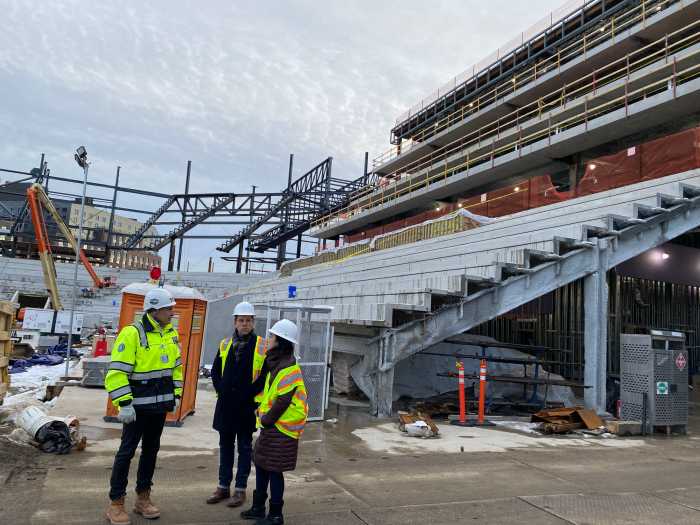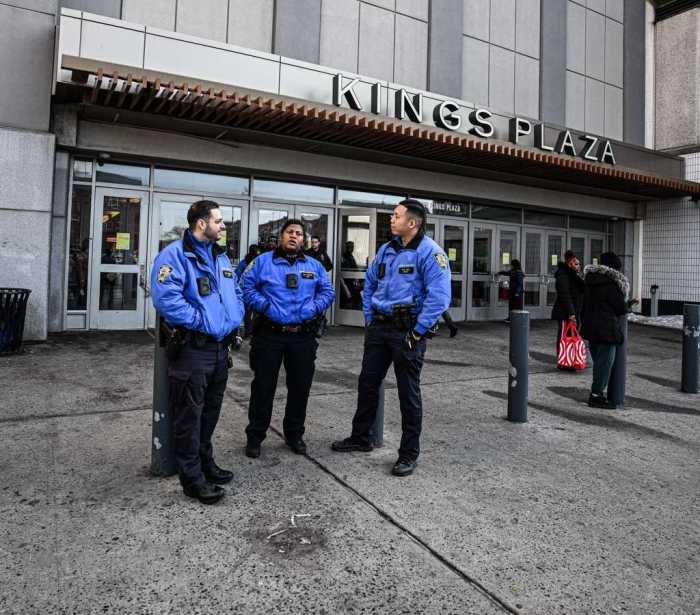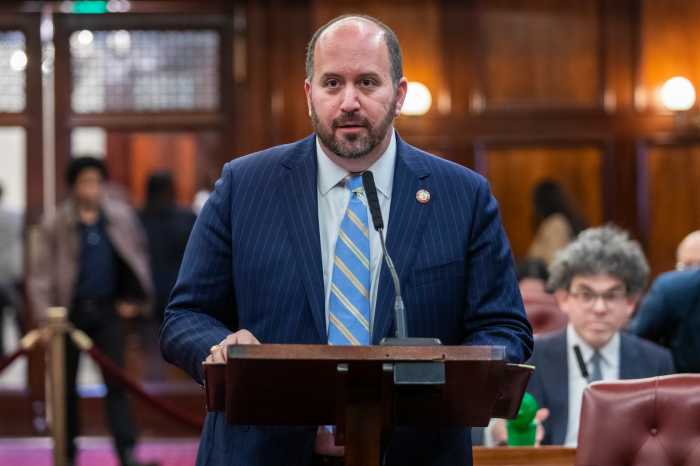New York City Football Club (NYCFC) revealed new details of its proposed $780 million 25,000-seat soccer stadium they plan to build as part of the Willets Point redevelopment at a Community Board 7 Land Use committee hearing in Whitestone Wednesday, Nov. 15.
If all goes as planned, when it opens in 2027 the new facility will be the first fully electric professional sports stadium in New York City, and the first ever in Major League Soccer.

“Sustainability is at the heart of this project and we’re focused on ensuring that the club is leading the way when it comes to reducing environmental impact,” NYCFC CEO Brad Sims said in a press release. “We’re committed to building a stadium that serves as a model for projects in the future. Through renewable energy, the use of efficient materials, waste reduction and effective compliance, we’re excited to deliver a sustainable home for the club and local community for decades to come.”
The privately financed stadium is at the heart of the city’s redevelopment project that would also deliver 2,500 units of 100% affordable housing at the site, as well as a 650-seat public school, 40,000 square feet of new public open space, retail space and a 250-room hotel across Tom Seaver Way from Citi Field. The 23-acre site was known as the Iron Triangle, which was home to scrap yards and auto body shops for decades, before they were demolished and nearly 170,000 tons of toxic soil was remediated.

“I’m proud that New York City will be home to the first fully electric sports stadium in Major League Soccer,” Mayor Eric Adams said. “It’s imperative that we continue our shift to a more sustainable and resilient future, helping New York to better prepare for a changing climate. As a city, we’re reshaping our relationship with energy: how we generate, store and use it. New York City Football Club’s stadium will serve as a model for that goal. New York City has taken significant steps to become more sustainable, resilient and equitable, and this proposed stadium encompasses those commitments.”
Phase 2 of the Willets Point redevelopment plan entered into the city’s ULURP process last month and the CB 7 meeting at St. Lukes Church in Whitestone and NYCFC made its presentation as part of the public review process ensuring the new stadium would be in full compliance with all local laws and regulations in relation to sustainability.
“New York City Football Club is driven by a passionate belief that the sport can have a positive impact in our communities and empower better lives. Sustainability is at the core of that belief and we’re committed to playing our part in the future of our communities,” said Pete Bradshaw, City Football Group’s director of sustainability. “New York City Football Club’s sustainability plan sets out clear priorities on our journey to credible net zero by eliminating risk, building resilience and creating opportunities.”

The facility will draw much of its power from an array of solar panels installed on the stadiums, roof, a water harvesting system below the pitch will capture rainwater and re-use it for irrigation and materials, fixtures and fittings will wherever possible be locally sourced to avoid substantial transportation impact on the environment.
“This soccer stadium, and the larger Willets Point project, will transform a part of Queens that has a long and difficult history of environmental degradation,” Council Member Francisco Moya said. “It’s imperative that protecting vulnerable communities against the effects of climate change is at the heart of all infrastructure projects in our borough. As this stadium plan demonstrates, New York City Football Club takes sustainability incredibly seriously. I’m excited and proud that Queens would be home to a stadium that would serve as a model to others moving forward.”


































